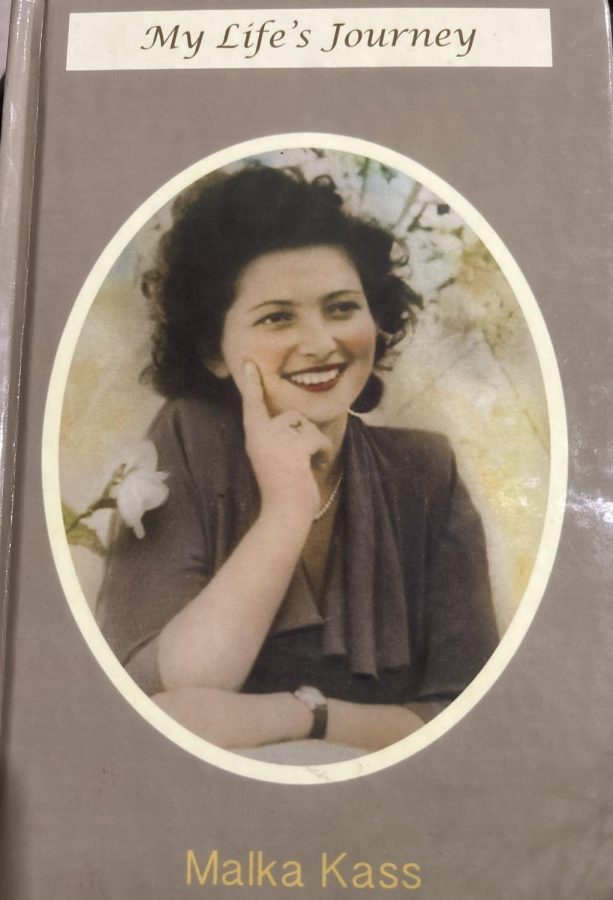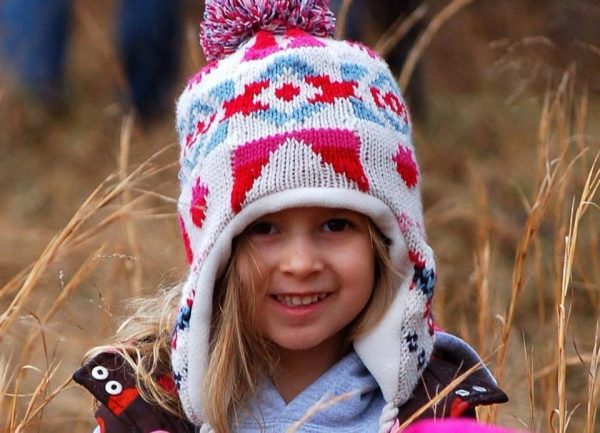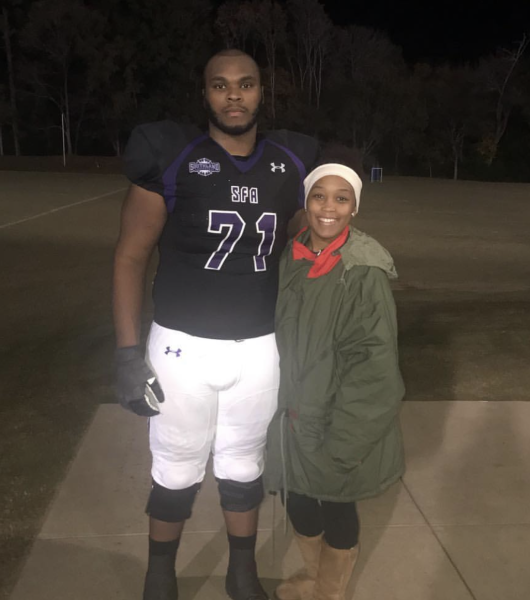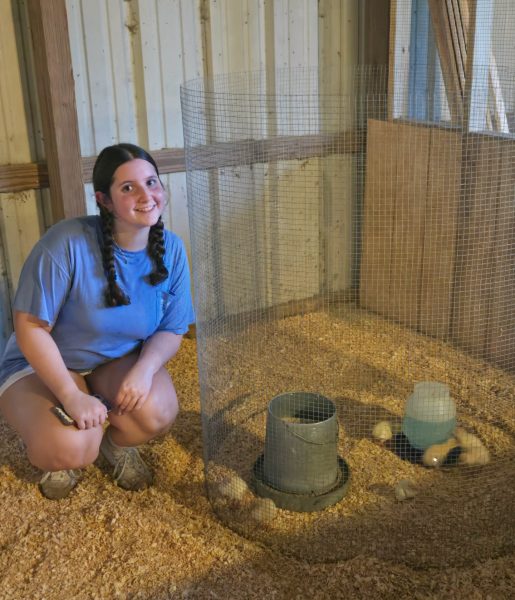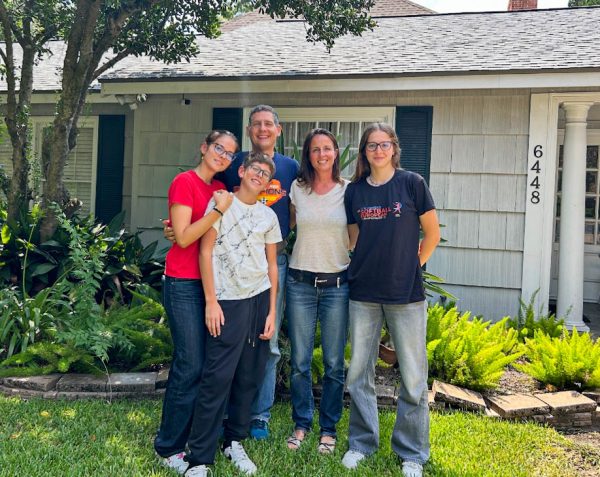‘We still have to listen to their stories’
Sophomores retell emotional family Holocaust experiences
“My Life’s Journey” is the book written by Lutfak’s grandmother, Bracha Lutfak, about her mother, Malka Kass’ story. “She was never in a camp,” Lutfak said. “She was able to get out about a day before the Nazis marched into her city and headed toward Russia.”
She was not the one who spent her childhood fleeing from the Nazis and the French who were working with them.
She was not the one who died on the way to a concentration camp after being deported in a cattle train in April of 1944.
But she is the one who lights a candle every year and reads the story of her great grandfather, who was one of approximately 6 million Jews who were victims of the Holocaust.
“I feel that retelling stories of my relatives is one thing I can do along with maintaining our traditions, fighting to make sure Holocaust deniers are illegitimized,” sophomore Sarah Nitsun said. “My great grandfather lived in Agen in France, and he was a doctor. He was stopped when he tried to make a fake identity card so the gestapo wouldn’t know he was Jewish. He worked in the resistance and the gestapo that stopped him tried to get him to give names of others in the resistance, and even though he faced torture, he refused.”
Seventy-seven years ago today, the German concentration camp of Auschwitz-Birkenau was liberated by the Soviet Army. One of the most infamous and complex concentration camps, Auschwitz consisted of three camps opened over the course of two years, where approximately 1.1 million people were killed.
As of Nov. 1, 2005, the United Nations General Assembly officially adopted a resolution designating Jan. 27 as International Holocaust Remembrance Day.
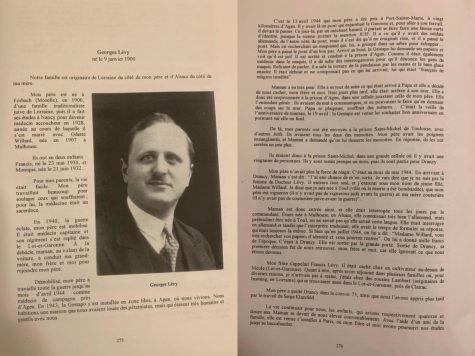
“I usually only celebrate the Jewish Remembrance Day, not so much the international one, but this year I will definitely spread information on social media and to my friends on International Holocaust Remembrance Day,” Nitsun said.
Yom HaShoah, Holocaust Remembrance Day in Israel, falls on the 27th day of the first month of the Jewish calendar, Nisan.
Sophomore Ellie Lutfak plans to commemorate Yom HaShoah on April 17 by listening to speeches recorded in Israel on the TV with her family.
“It makes me think about my relatives and what they went through and what the Jewish community as a whole went through,” Lutfak said. “I’m happy that we get to have morals for it since basically all of them [Holocaust victims] were never buried in graves, so it’s good to hear their stories.”
Lutfak’s great grandmother survived time in a work camp and went on to write a book for her 13 grandchildren.
“The book is called ‘My Life Journey,’” Lutfak said. “My grandmother Bracha Lutfak wrote it, but it is her mother, Malka Kass’, story.”
Lutfak wishes for those who are not Jewish to listen to the stories of the Holocaust as well to make sure history does not repeat itself.
“Listening to the horrors they went through really does leave an impact when you hear the stories,” Lutfak said. “I do think more people need to be educated because there are many people who don’t actually know about the Holocaust or what it is. They just know the outline and that’s basically it, so I do think that we need to go into more detail on it.”
After learning about the Holocaust in Jewish schools at a young age, Lutfak feels the teachings of public schools did not give in depth lessons about the event.
“The [public] school explained it, but they didn’t really talk about as much as I feel like they should, because it is a huge thing that happened,” Lutfak said.
Nitsun also agrees that the Holocaust should be taught more in schools and said she is “very passionate” about educating others about its history.
“Even though it happened in the last century, I think it’s something people still need to educate themselves on,” Nitsun said. “Every time the Holocaust is talked about in school, I still feel like people think it’s a very distant thing that’s so far and old, but it’s really not.”
Through the influence of her parents’ and hearing stories every year about her great grandparents surviving the Holocaust, Nitsun said she would like to expand peoples’ perspective on Judaism past just a religion and bring attention to the presence of the Jewish population today.
“I think a lot of people my age just think that the Holocaust was so long ago, and it really wasn’t,”
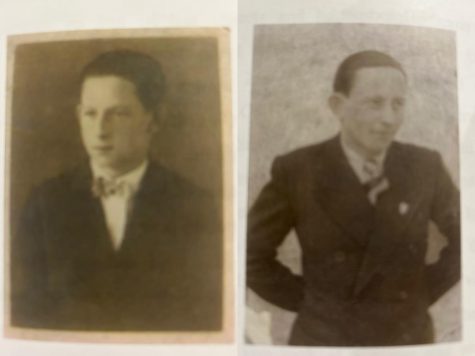
Nitsun said. “I met a Holocaust survivor just the other day. People sometimes don’t understand that there are Jews all around them today, and that Jewish people are still here. It’s still a very prominent and growing religion.”
At a Jewish National Summit, Nitsun and her mom sat next to a 96-year-old Holocaust survivor from Auschwitz who started telling them her story.
“She just rolled up her sleeve and showed us her tattoo from Auschwitz, and we weren’t expecting that,” Nitsun said. “It was very emotional, and we formed a very deep connection with her. It really just reminds you that there are still Holocaust survivors here today and that we still have to listen to their stories.”
(The 2023 United Nations Holocaust memorial ceremony is being held today, Jan. 27, in the United Nations General Assembly Hall in New York. There will be memorial prayers recited, Holocaust survivor stories shared and musical performances under the theme “Home and Belonging.”)
Your donation will support the student journalists of Bellaire High School. Your contribution will allow us to purchase equipment and cover our annual website hosting costs.



